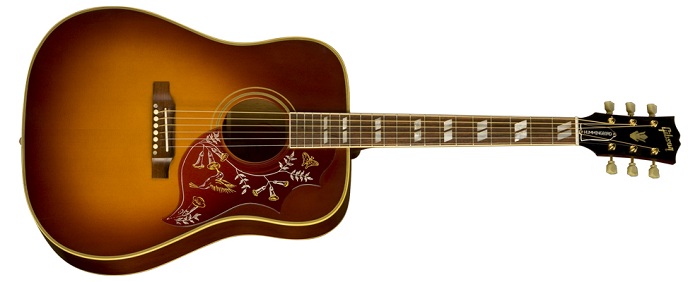Gibson entered into a criminal enforcement agreement with the US Department of Justice, effectively admitting their Lacey Act violations.

This settlement stemmed from the allegations that Gibson illegally purchased and imported ebony wood from Madagascar and rosewood and ebony from India.
Illegal logging in Madagascar has been a very big problem. Even with the high market value attached to the precious woods from Madagascar, the workers that extract the trees are said to be paid less than $4 per day. These workers are local villagers that have little experience in forestry, their inexperience cause them a lot of injuries and destroys many of the surrounding plants. Their lack of experience also causes much of the wood to be wasted during extraction. For this reason and for its environmental impact, exporting of specific Madagascar woods was banned.
Assistant Attorney General Moreno of the Justice Department’s Environment and Natural Resources Division was quoted saying: “As a result of this investigation and criminal enforcement agreement, Gibson has acknowledged that it failed to act on information that the Madagascar ebony it was purchasing may have violated laws intended to limit overharvesting and conserve valuable wood species from Madagascar, a country which has been severely impacted by deforestation. Gibson has ceased acquisitions of wood species from Madagascar and recognizes its duty under the U.S. Lacey Act to guard against the acquisition of wood of illegal origin by verifying the circumstances of its harvest and export, which is good for American business and American consumers.”
According to the settlement agreement, Gibson knew that Madagascar banned the harvest and export of ebony products, but still they continued to acquire the said illegal wood. These purchases were investigated on by the U.S. Fish and Wildlife Service with assistance from U.S. Immigration and Customs Enforcement, this prompted the previous raids, with which they did find banned woods in the hands of Gibson. The criminal enforcement agreement comes with all the juicy details that describe the conduct for which Gibson accepts and acknowledges responsibility. We quote the established story below:
“Madagascar Ebony is a slow-growing tree species and supplies are considered threatened in its native environment due to over-exploitation. Both legal and illegal logging of Madagascar Ebony and other tree species have significantly reduced Madagascar’s forest cover. Madagascar’s forests are home to many rare endemic species of plants and animals. The harvest of ebony in and export of unfinished ebony from, Madagascar has been banned since 2006.
Gibson purchased “fingerboard blanks,” consisting of sawn boards of Madagascar ebony, for use in manufacturing guitars. The Madagascar ebony fingerboard blanks were ordered from a supplier who obtained them from an exporter in Madagascar. Gibson’s supplier continued to receive Madagascar ebony fingerboard blanks from its Madagascar exporter after the 2006 ban. The Madagascar exporter did not have authority to export ebony fingerboard blanks after the law issued in Madagascar in 2006.
In 2008, an employee of Gibson participated in a trip to Madagascar, sponsored by a non-profit organization. Participants on the trip, including the Gibson employee, were told that a law passed in 2006 in Madagascar banned the harvest of ebony and the export of any ebony products that were not in finished form. They were further told by trip organizers that instrument parts, such as fingerboard blanks, would be considered unfinished and therefore illegal to export under the 2006 law. Participants also visited the facility of the exporter in Madagascar, from which Gibson’s supplier sourced its Madagascar ebony, and were informed that the wood at the facility was under seizure at that time and could not be moved.
After the Gibson employee returned from Madagascar with this information, he conveyed the information to superiors and others at Gibson. The information received by the Gibson employee during the June 2008 trip, and sent to company management by the employee and others following the June 2008 trip, was not further investigated or acted upon prior to Gibson continuing to place orders with its supplier. Gibson received four shipments of Madagascar ebony fingerboard blanks from its supplier between October 2008 and September 2009.”

This settlement agreement defers prosecution for criminal violations, but will require Gibson to pay a penalty amount of $300,000. Gibson is also required to pay the National Fish and Wildlife Foundation an amount of $50,000 as community service. Gibson is also expected to implement a compliance program designed to strengthen its Lacey Act compliance controls and procedures. Finally, Gibson will also lose its claim to some of the wood seized by the government, including Madagascar ebony from shipments with a total invoice value of $261,844.
Gibson has previously been crying foul that the Justice Department is bullying them. They said that they have been fully cooperating with the government providing the documentation related to their wood-buying activities over the years. They were surprised as to why the Government had to do a raid, when they could have given them what they needed if they asked.
Gibson CEO Henry Juszkiewicz commented, “We felt compelled to settle as the costs of proving our case at trial would have cost millions of dollars and taken a very long time to resolve. This allows us to get back to the business of making guitars. An important part of the settlement is that we are getting back the materials seized in a second armed raid on our factories and we have formal acknowledgement that we can continue to source rosewood and ebony fingerboards from India, as we have done for many decades.”
Although the settlement will cost Gibson some serious penalties, it did allow Gibson to avoid criminal charges and continue to make guitars – provided that they avoid further violations.
Related News:
Gibson Guitars now called Gibson Brands
Gibson Raided by US Federal Agents Again!
Gibson intervenes on Guitar Travel Mishap

Henry is a corporate worm, but the government makes him look like St. Francis of Assissi! So now the guys cutting trees for a living in Madagascar can change professions and become the new east African pirates…
Here on GuitarSite.com we’ve been following this story since it first began with the raids on the Gibson factory, and I have to say you’ve made the most original comment on the subject that I’ve seen!
Hey, Jason, Is that “original” in a good or bad way??? (I’m usually “original” in a way that pisses people off!)
Although I think Gibson’s business model of forcing dealers to buy massive amounts of stock they don’t want in order to get the stuff they do want sucks and runs contrary to the “spirit of making music” (whatever the hell that is), the Nanny State government’s Lacey Act is really slimy. If you have a pre-war Martin made with rosewood, as I understand it, the guitar is illegal unless you can absolutely prove that it kosher, which you probably can’t do as way back then nobody thought that something as absurd as this piece of legislation would ever be enacted! (Obama Care for guitars??? I.e. Totally stupid, worse than worthless legislation.)
We have myriad crippling laws and regulations that have sent almost all our manufacturing to China, etc. Yippee: OSHA has made our (non-existent) factories safe while China spews tons of shit in the air burning soft coal. Jobs would come back here in no time if we wouldn’t allow anything to be imported into the USA unless the manufacturing country adhered to the same crippling regulations that our companies have to obey. (Yeah, that’ll happen….!)
Oh, well, I like maple fingerboards, anyway! In fact, I just got a Music Man Albert Lee MM90 with piezo bridge that has a birdseye neck that is GORGEUOS!!! I’ve been playing for 49 years and this is the finest guitar I’ve ever owned or played!)
BTW, if you’re involved in running Guitar Site, how about starting a movement to have the guys who make videos demo-ing guitars TUNE THE DAMN THINGS FIRST!!! Drives me nuts… Plus, in all these reviews you see the tones are usually 90% distortion… This tells you absolutely nothing about how the guitar sounds! Any piece of crap with a pickup can sound good distorted……………….!